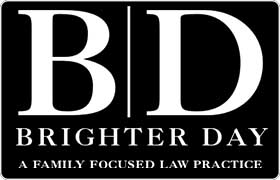Parker Family Law Lawyer, Colorado
Sponsored Law Firm
-
 x
x

Click For More Info:
-
Brighter Day Law
1127 N Weber St Colorado Springs, CO 80903» view mapDivorce & Family Law A Family Focused Law Practice
Sanders Law Firm’s core value is to protect your rights and achieve your goals.
800-930-7641
Includes: Collaborative Law, Domestic Violence & Neglect, Paternity, Prenuptial Agreements
Angela R. Whitford
✓ VERIFIED *Status is reviewed annually. For latest information visit hereDivorce & Family Law, Divorce, Child Custody, Child Support, Family Law
Ms. Whitford's practice focuses on representing clients in all aspects of the dissolution of marriage process, legal separation, post-decree modificat... (more)
Mark C. Smith
✓ VERIFIED *Status is reviewed annually. For latest information visit hereDivorce & Family Law, Family Law
Karin Van Zee
Commercial Real Estate, Family Law, Civil Rights, Personal Injury
Status: In Good Standing *Status is reviewed annually. For latest information visit here Licensed: 27 Years
James J.L. Ahern
Family Law, Divorce & Family Law, Criminal, Accident & Injury
Status: In Good Standing *Status is reviewed annually. For latest information visit here
George Damon Bruntz
Trusts, Estate Planning, Family Law, Divorce, Bankruptcy
Status: In Good Standing *Status is reviewed annually. For latest information visit here
Tricia Marie Laylock
Family Law, Divorce, Prosecution, Child Support
Status: In Good Standing *Status is reviewed annually. For latest information visit here Licensed: 15 Years
Cody Anne Christian
Family Law, Wills & Probate, Misdemeanor, Elder Law
Status: In Good Standing *Status is reviewed annually. For latest information visit here
David S. Rolfe
Mediation, Dispute Resolution, Family Law, Juvenile Law
Status: In Good Standing *Status is reviewed annually. For latest information visit here Licensed: 38 Years
Alan Michael Curtis
Family Law, Divorce & Family Law, Criminal, Accident & Injury
Status: In Good Standing *Status is reviewed annually. For latest information visit here Licensed: 15 Years
Traci Engdol Fruhwirth
Family Law
Status: In Good Standing *Status is reviewed annually. For latest information visit here Licensed: 28 Years
 Angela Jones Colorado Springs, CO
Angela Jones Colorado Springs, CO

